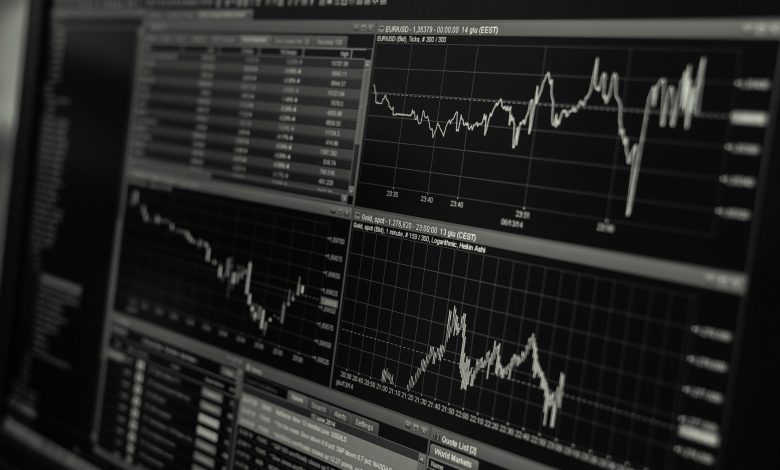New Cash App Investing: Robinhood Alternative

Commission-free investing quickly made Robinhood a popular choice for anyone interested in trading on the stock market. And with the first commission-free stock exchange began a race to the bottom for every other company in the market. The bottom, in this case, is zero—completely free trades. But while Robinhood was the first successful company to offer free trades, Webull has stampeded into the market, potentially offering a superior product depending on what kind of investor you are.
Before we cover what makes the two apps different, let’s first go over their similarities. Both apps offer many features, such as:
- Zero commission fee on trades
- Access to trade thousands of stocks and ETFs (exchange traded funds)
- No charge to open or maintain an account
- A mobile app to manage your account and make trades
- Regulated by FINRA
- Free stock for signing up
- Extended-hours trading
Who Is Robinhood Designed For?
Robinhood is like the Apple of investing applications. It’s sleek, stylish, and the platform is easy to use, just as you would expect from an Apple product. But also like Apple products, it can be limited in what you can do with it.
Robinhood is supported by a 15-minute podcast and daily email called Robinhood Snacks, which is geared towards millennials. This target audience falls in line with how Robinhood is mainly built for beginner investors.

Who Is Webull Designed For?
Webull began in 2018 to compete with Robinhood directly. To do so, they designed an app that does more than the Robinhood app does when it comes to research and data.
When you click on a company on Robinhood, you see the essential data you would expect from any finance website or app. There is an interactive graph of the stock’s value going back as far as five years. Below that, you can see the volume of trades, the company’s market cap, P/E ratio, dividend yield, and 52-week high and low prices.
When you scroll down, there is an “Analyst Rating” that includes the opinions of a handful of analysts who recommend buying, holding, or selling the stock. The last bit of data available on Robinhood is a dot chart of the company’s earnings per quarter, along with what their expected earnings were.
For additional research, Robinhood Gold is available featuring “Level II Market Data.” Gold costs $5 per month and gives you access to $10,000 instant deposits, research and analysis by Morningstar, real-time bids and asks, and the ability to invest on margin. The problem with Robinhood Gold is that many of these features are available for free on Webull.

Research Tools on Webull
Webull’s interface is like Robinhood on steroids. While it is not as clean or sleek as RH, when you look at a company on Webull, you have access to exponentially more information. The only issue with this is how much of that information you will find useful.
Just like with Robinhood, when you pull up a company on Webull, you are first greeted to a graph of the stock price’s history. While Robinhood goes back just five years, Webull goes back ten. And while on Robinhood, there is only one line showing the stock price’s movements, Webull shows a variety of different lines depending on which indicators you select. These indicators include MA, EMA, BOLL, and IC. If you have no idea what these indicators are, you can also choose “none” to simply track the stock price.
Just below the graph is the stock’s MACD (moving average convergence/divergence), which is another indicator used in the technical analysis of stocks.
As you can tell by this first salvo of information, Webull works best for more seasoned investors that can find value in the free and easily accessible information offered by Webull. But for a beginner investor, all of this extra data might be more distracting than helpful.

Why Should I Use Webull?
For the savvy investor, Webull is the perfect alternative to Robinhood. Underneath the graph and various indicators for a company are seven different tabs that you can click on for further information. These tabs include:
- Quotes
- News
- Comments
- Analysis
- Press Releases
- Financials
- Profile
Again, Webull goes much deeper into the research of a company than Robinhood, which instead offers a selection of recent articles related to a company.
Under the “quotes” tab is a running ticker of sales and the stock’s sale price, along with volume analysis. The “news” tab, like RH, offers recent news collected from a variety of reputable websites. Under the “comments” tab is where Webull gets more interesting.
Stock Predictions and Webull Points
When you click on “comments,” you see something called “Stock Predictions” with a meter running from “Bullish” on the left to “Bearish” on the right. If you are bullish about a company, you believe the stock price will rise higher than expectations. If you are bearish, you think the stock price will fall lower than expectations. The meter acts as a running poll for Webull users.
Here is where it gets interesting. For every prediction you make correctly, selecting either bearish or bullish, you will receive one Webull point. You can make ten different predictions per trading session, and predictions are closed at 3 pm EST. Stock predictions are just one of the ways you can earn Webull points. You also earn points by posting ideas and comments on the Webull community page, completing various tasks, and participating in promotional activities.
Here’s how Webull points are earned:
- 100 points for signing up
- 2 points per post you make
- 1 point per comment you make, up to 20 per day
- 10 points per trading note shared
Currently, Webull says that the points can be redeemed for future product offerings. A fair guess would be that Webull will be offering premium research tools locked behind a paywall. But if you have enough points stored up, you would not have to pay for access.
Ever since introducing the point system, Webull has randomly held contests with prize pools as high as $100,000. By participating and correctly predicting stock price movement, you could win a piece of the total prize pool.
Retirement Accounts
The final main difference between Webull and Robinhood is that Webull offers access to retirement accounts, while RH does not. Your options to choose from on Webull are a traditional IRA, Roth IRA, and Rollover IRA.



